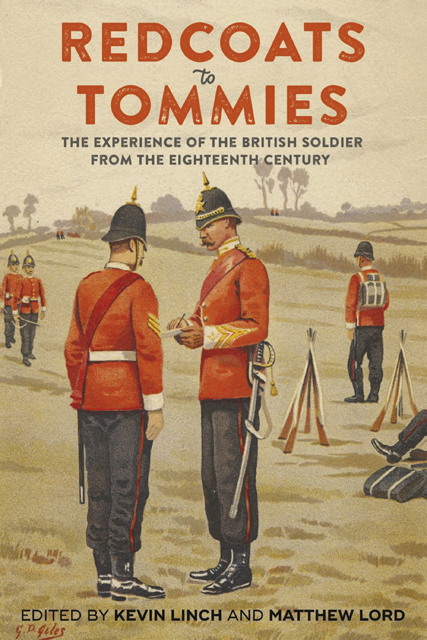Introduction
Published online by Cambridge University Press: 17 January 2023
Summary
In 1979, Elvis Costello and the Attractions’ single ‘Oliver’s Army’ reached number two in the UK singles chart. Written as a commentary on the Troubles in Northern Ireland in the late 1970s and the presence of soldiers of the British army on the streets of Belfast, it also made references to the long history of the British army, not least in its title where the army was linked to Oliver Cromwell and so to the professional, red-coated soldiers of the New Model Army of the 1640s and 1650s. As an Irish singer-songwriter, Elvis Costello was not typical of most people’s grasp of the history of Britain’s military. Indeed, the serious lyrics of ‘Oliver’s Army’ were hidden under a catchy pop melody, and its success had more to do with the latter than its anti-war and class-conscious messages. Nevertheless, it did – and still does – speak to the long history of the British army. This is most evident in the self-conscious concern with lineage and heritage in many popular histories of the army, and the army’s own portrayal of itself; a type of military genealogy for which it has become famous.
Despite this sense of lineage and heritage, historians have often tended to segregate the experiences and lifecycle of the British soldier into distinct, and perhaps artificial, phases reflecting the broader and rather disjointed development of the British army as a whole. For instance, the relationship between the soldier and British society is commonly accepted to have transitioned from one of suspicion and hostility in the eighteenth and early nineteenth century to one of jingoistic acclaim at the turn of the twentieth century. Furthermore, it is accepted that since the end of conscription in 1963, contact between soldier and civilian has increasingly disappeared, leading to a reduction of the military footprint within society and a consequent degree of alienation between soldiers and civilians. Whilst this notion of separate ‘ages’ of development certainly has its merits, it also tends to distract historians from considering longer-term trends and experiences common to soldiers across several centuries and which, in an institution with a pervasive sense of its traditions, are often more prominent than historians acknowledge.
This book takes a broader perspective of the themes and issues that run through the history of Britain’s land forces from the eighteenth century into the twentieth.
- Type
- Chapter
- Information
- Redcoats to TommiesThe Experience of the British Soldier from the Eighteenth Century, pp. 1 - 16Publisher: Boydell & BrewerPrint publication year: 2021

